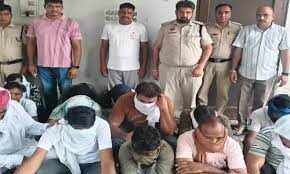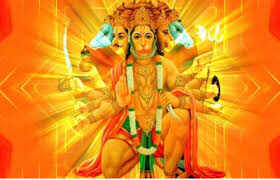Martial law means military law… After Sheikh Hasina resigned from the post of Prime Minister in Bangladesh and left the country, the possibility of imposing martial law in the country has become strong. Martial law is a situation when military rules and strict orders are implemented in place of civilian laws in a country. This system has been implemented many times before in Bangladesh. There have been bloody military coups here many times and during this martial law was implemented.
The history of Bangladesh is filled with many important political events, of which martial law is an important part. Bangladesh separated from Pakistan in 1971 and became an independent nation. India played an important role in its independence. This country faced political instability many times in the years after independence. Due to this instability, martial law was imposed many times.
Martial Law
In 1975, after the assassination of Bangladesh’s first president Sheikh Mujibur Rahman, General Zia-ur-Rahman took power. He imposed martial law in the country and established a military regime. At this time, there was political instability and chaos in the country. General Zia took steps towards new constitutions and political reforms, but during this regime too, incidents of political protests and human rights violations took place. During martial law, the civil rights of citizens are usually suspended. This can happen in Bangladesh as well. During this time, the public cannot even protest. Military action can be taken if they do so. Every system is under the watch of military officials. In such a situation, the government system usually works well during martial law. The public does not face any direct problems, but due to the suspension of their civil rights, they sometimes feel suffocated.
1982 coup
In 1982, General Hussain Mohammad Ershad took power through another military coup and imposed martial law. His aim was to bring political stability to Bangladesh and end corruption. During Ershad’s rule, many steps were taken for political reform and development in the country, but incidents of human rights violations and political repression were also seen under his rule.
effect of martial law
Under martial law, the government often took concrete steps to control corruption and lawlessness. However, these reforms were often temporary and their long-term effectiveness was questionable. During martial law, personal freedom and human rights are usually ignored. During military rule, repressive actions are taken against political opponents and ordinary citizens.
Military rule also affected Bangladesh’s economy. Instability and conflict slowed economic growth and decreased investor confidence. After martial law, Bangladesh moved several times towards democratic rule. However, despite each change, problems such as political instability and corruption persisted. Bangladesh has attempted to strengthen its democratic institutions and work towards social and economic development.
The army took command
Sheikh Hasina has resigned from the post of PM after violent protests against the reservation policy. After this, the army has taken the command of the country in its hands. The army has announced to form an interim government. For this, it has formed an 18-member committee which includes former governor of Bangladesh Bank, renowned professors and many former military officers.
Tags: Bangladesh news, sheikh hasina
FIRST PUBLISHED : August 5, 2024, 18:41 IST








